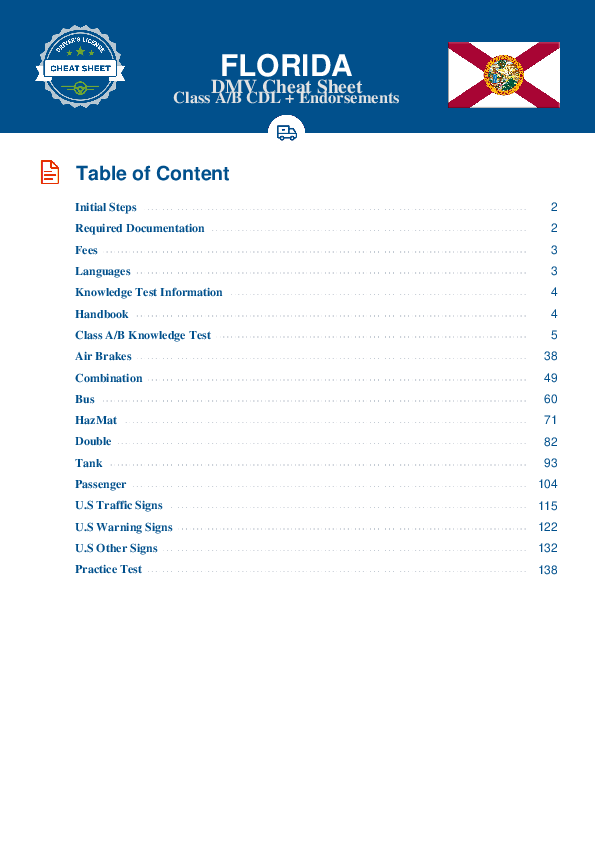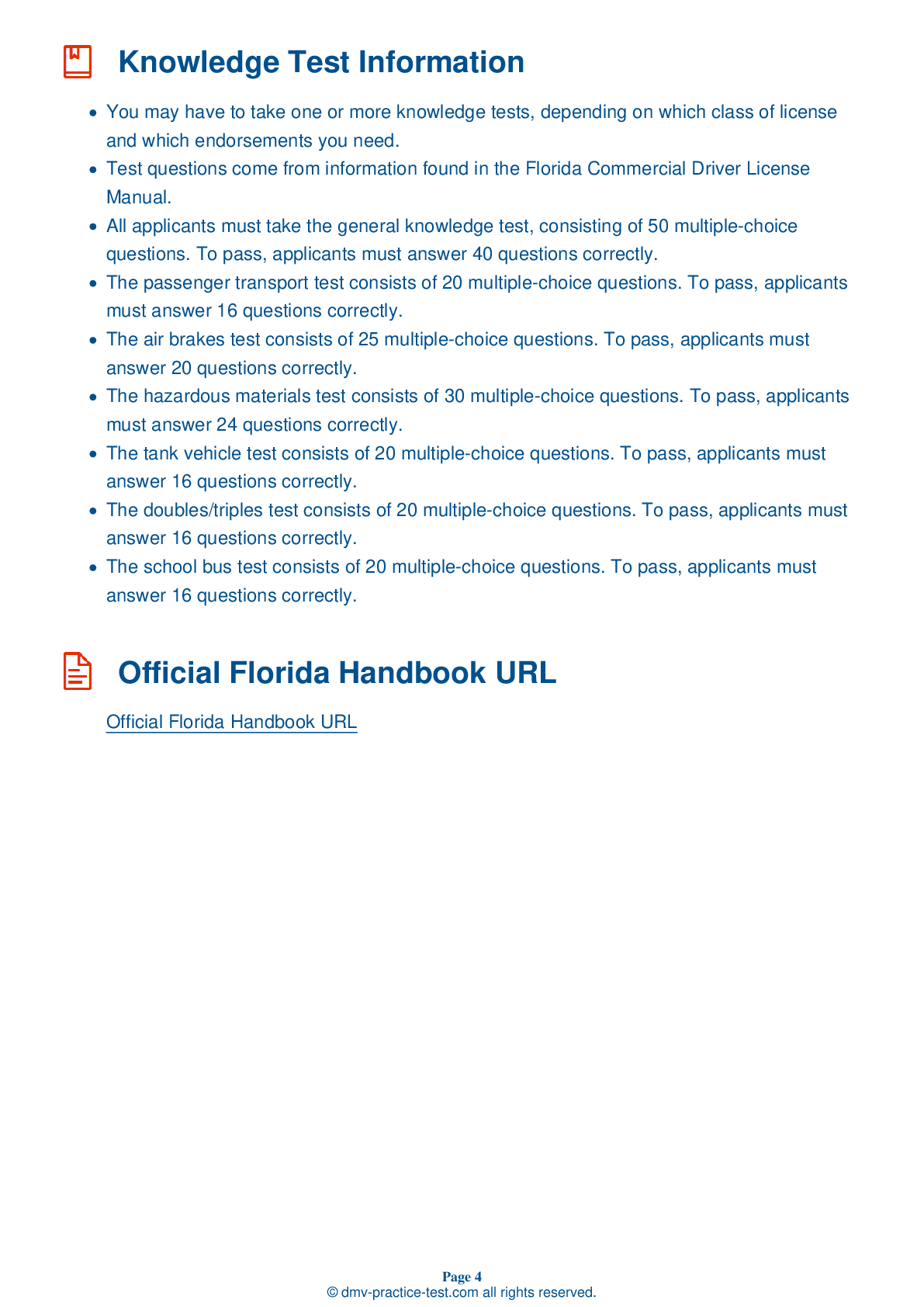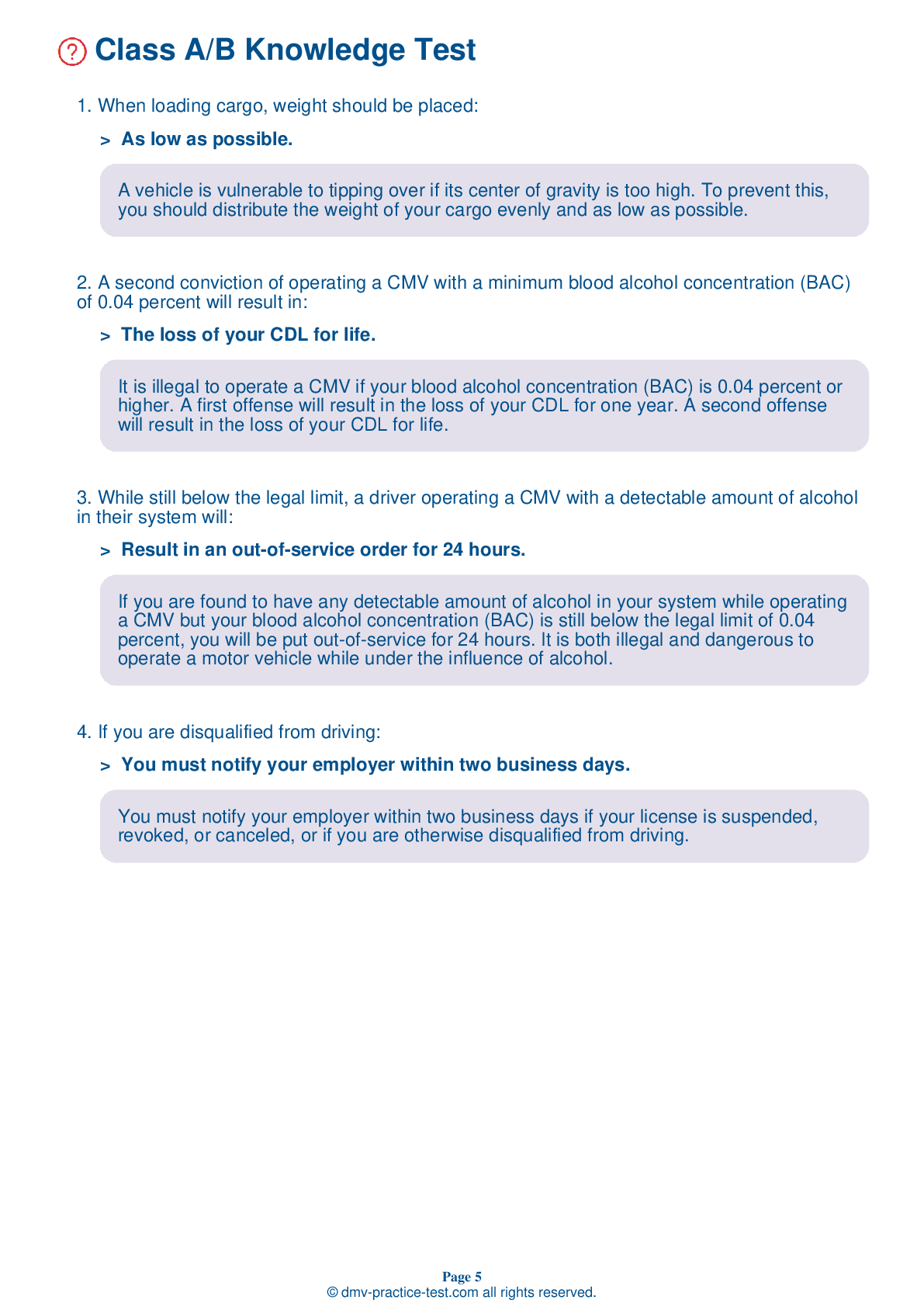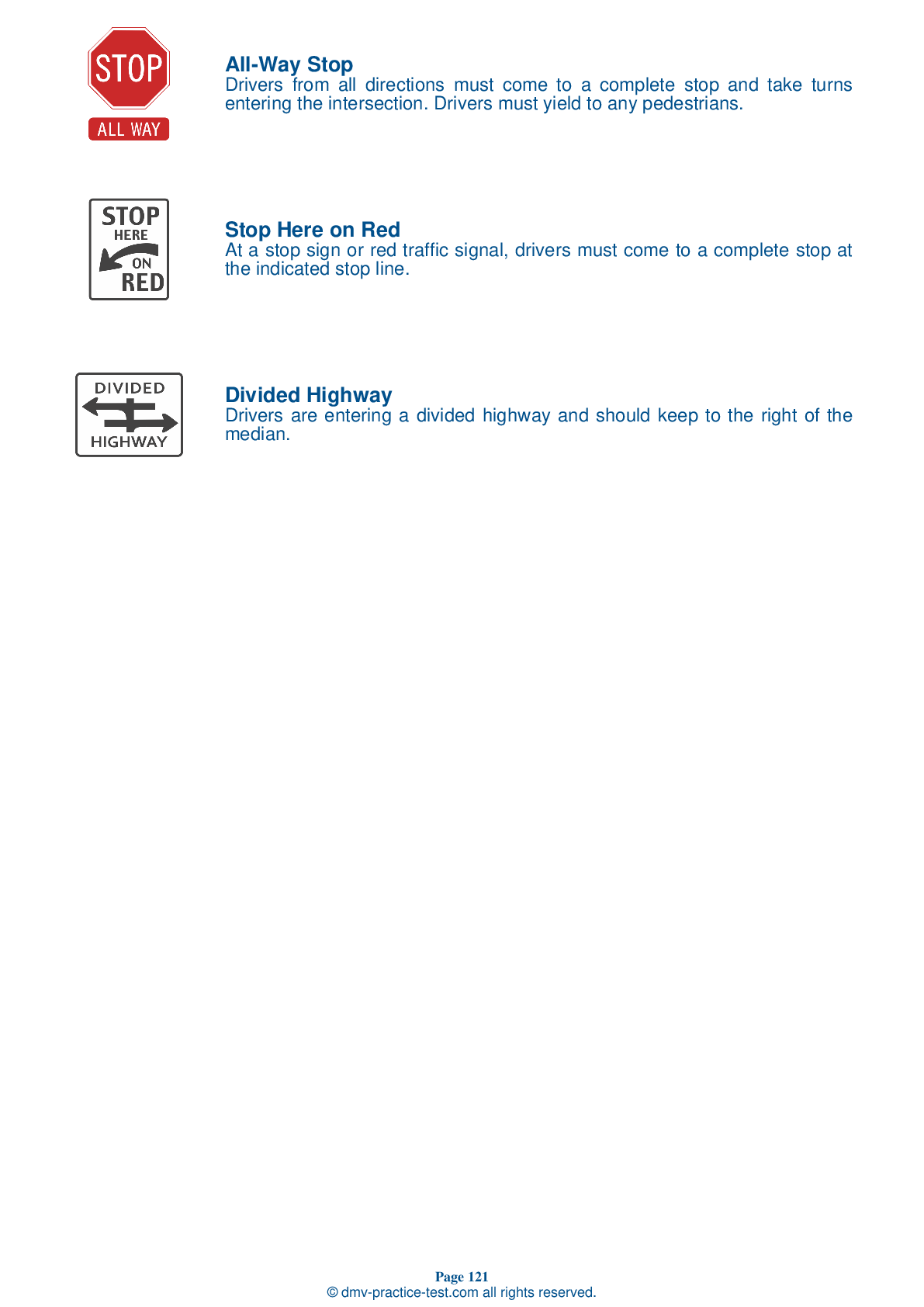Combination #2
Combination Vehicles Practice Test | Florida 2026 #2
Train for FREE online with our Florida CDL combination vehicle test. The official exam test consists of several obligatory parts, with all of them checking your knowledge of different blocks of road rules. If you need to obtain a FL combination license in 2026, practice as much as possible. Free sample tests published on our website will help you check and improve your knowledge and boost your grades. Please bear in mind that DMV requirements for issuing a combination license may vary from state to state.
20
16
20
1 . A lightly-loaded combination vehicle will stop more slowly than a fully-loaded vehicle because:
The suspension springs only operate when a trailer reaches a minimum weight.
An empty combination vehicle will come to a complete stop more slowly than a fully-loaded vehicle. The stiff suspension springs and strong brakes will have lower traction on a light trailer than they would if the vehicle carried more weight.
2 . What happens when the wheels of a trailer lock up?
The trailer will stop.
A trailer tends to swing around, potentially resulting in a trailer jackknife, if its wheels lock up.
3 . The trailer hand valve should:
Be used on slippery surfaces.
The trailer hand valve works the trailer brakes but should only be used when testing them. Using it while driving could create a skid. Never use the trailer hand valve while parking because doing so may release the air pressure from the braking system, releasing the brakes that are holding the vehicle in place.
4 . A tractor protection valve is:
A device that allows the battery to recharge efficiently.
On combination vehicles with air brakes, the tractor protection valve keeps air in the tractor or truck brake system, should the trailer develop a bad leak or break away from the tractor.
5 . The emergency air line:
Prevents skids.
The emergency air line (also known as the supply line) has two functions. The first is to supply air to the trailer air tanks on a combination vehicle, and the second is to control the emergency brakes.
6 . The trailer hand valve:
Should only be used when transporting cargo.
The trailer hand valve should not be used for parking. This could cause all of the air to leak out of the braking system, resulting in the brakes releasing. Instead, use the parking brake.
7 . When glad hands are coupled, the seals should be pressed together at an angle of:
90 degrees.
When coupling, be sure to couple the proper glad hands. When glad hands are connected, the seals should be pressed together at a 90-degree angle.
2026 Florida | Frequently Asked Questions
To acquire a CDL Hazmat endorsement in Florida, you must already hold a valid CDL. Complete a HAZMAT endorsement application, pass a written test, and undergo a TSA background check. Once approved, you can add the Hazmat endorsement to your CDL. Make sure to renew it every five years or according to Florida's specific regulations.
To obtain a CDL Hazmat license, you must first have a Commercial Driver's License (CDL). You must also be at least 21 years old, a U.S. citizen or have legal status, and be able to read and speak English. Additionally, you need to pass the Hazmat knowledge test and undergo a Transportation Security Administration (TSA) background check.
When applying for a CDL Hazmat endorsement, you need to provide proof of U.S. citizenship or legal status, such as a passport or birth certificate. You also need your current CDL. Additionally, you must complete the Hazardous Materials Endorsement application form, and provide fingerprints for the TSA background check. Always check with local regulations for any additional requirements.
Yes, there is a dedicated written test for the CDL Hazmat endorsement. The Hazardous Materials Endorsement Knowledge Test assesses your understanding of the rules and regulations related to transporting hazardous materials. It covers topics like loading and unloading, bulk packaging marking, driving and parking rules, and emergency response procedures.
The written test for the CDL Hazmat endorsement covers a variety of topics related to handling hazardous materials. These include understanding hazard classifications, shipping papers, placarding rules, emergency response procedures, safe loading and unloading practices, and incident reporting requirements. It also tests knowledge of federal and state regulations for transporting hazardous materials.
Yes, acquiring a CDL Hazmat endorsement involves additional charges. The cost includes a fee for the endorsement application, a fingerprinting fee for the TSA security threat assessment, and a fee for the knowledge test. The exact amounts can vary by state, so it's best to check with your local DMV or equivalent agency for specific pricing.
Yes, obtaining a CDL Hazmat endorsement requires passing a Transportation Security Administration (TSA) background check. This involves fingerprinting and checking criminal, immigration, and terrorism records. The goal is to ensure the safety and security of hazardous material transportation. Applicants must also have no disqualifying criminal offenses.
Yes, specialized training is necessary for the CDL Hazmat endorsement. Applicants must pass a written knowledge test on handling hazardous materials. While not required, many choose to enroll in training programs to prepare. After passing the test, a background check by the TSA is also required before the Hazmat endorsement is granted.
No, you cannot legally transport hazardous materials without a valid CDL Hazmat endorsement in the United States. This endorsement ensures that drivers are qualified and understand the necessary safety protocols for handling hazardous materials. Violation of this law can lead to hefty fines and potential loss of commercial driving privileges.
You can add the Hazmat endorsement to your current CDL. You don't need to apply for a new CDL. However, you must pass the Hazmat knowledge test and a TSA background check. Once you've passed these, you can add the endorsement to your existing CDL by visiting your local Department of Motor Vehicles (DMV).



